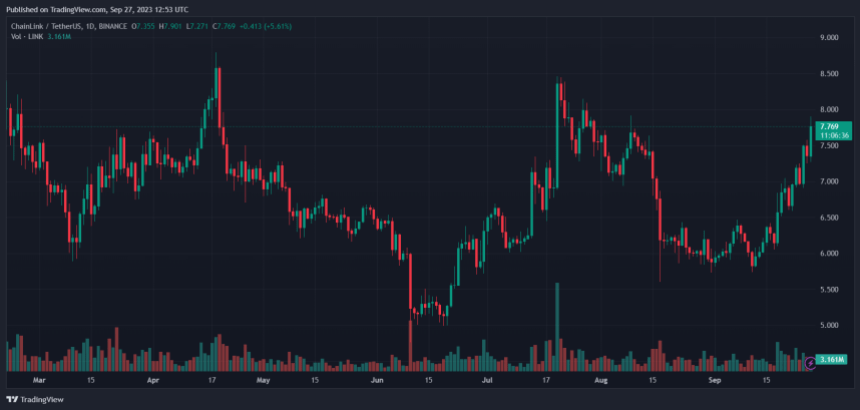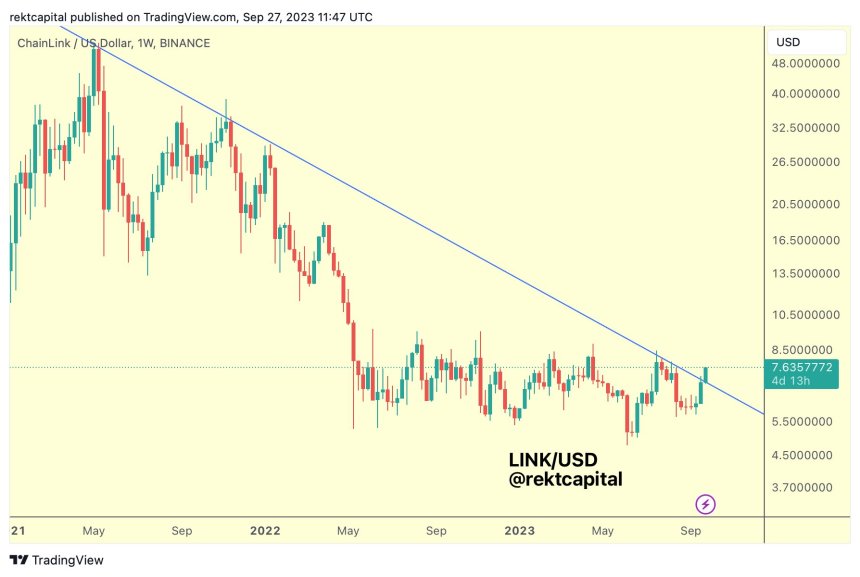 Rich Dad Poor Dad author Robert Kiyosaki has urged investors to ditch the U.S. dollar and buy bitcoin alongside gold and silver. He warned that “baby boomers’ retirements are going broke as paper assets crash.” The famous author stressed: “I do not trust anything that can be printed.” Robert Kiyosaki’s Latest Warnings and Advice The […]
Rich Dad Poor Dad author Robert Kiyosaki has urged investors to ditch the U.S. dollar and buy bitcoin alongside gold and silver. He warned that “baby boomers’ retirements are going broke as paper assets crash.” The famous author stressed: “I do not trust anything that can be printed.” Robert Kiyosaki’s Latest Warnings and Advice The […]
Source link
Broke
‘I’m Sure I’m Going To Die Penniless’ — Almost Half Of Gen X, The ‘Lost Generation,’ Has More Credit Card Debt Than Savings — Even the ‘Broke’ Millennials’ Are Faring Better

Generation X, often referred to as the “Lost Generation,” finds itself in a precarious financial situation, wedged between the money struggles of millennials and Gen Z on one side and the relative stability of baby boomers on the other. According to a recent Bankrate survey, 47% of Gen Xers (ages 44-59) have more credit card debt than emergency savings.
This statistic paints a picture of Gen X falling behind all generations, with millennials (ages 28-43) faring only slightly better at 46% having more debt than savings, and Gen Z (ages 18-27) at 32%. On the other end of the spectrum, baby boomers (ages 60-78) appear to be in a more comfortable position, with 68% having higher emergency savings than credit card debt — the highest percentage among all generations surveyed.
Don’t Miss:
-
The average American couple has saved this much money for retirement — How do you compare?
-
For many first-time buyers, a house is about 3 to 5 times your household annual income – Are you making enough?
The survey data highlights the financial tightrope that Gen X is walking, sandwiched between the debt burdens of millennials and Gen Z, often referred to as the “broke” generations, and the comparatively well-prepared boomers. This Lost Generation moniker takes on new significance as Gen Xers struggle to build a financial safety net amid competing demands of supporting their children and aging parents.
Greg McBride, chief financial analyst at Bankrate, points out the strain many households are facing, stating, “Financing purchases at 20% interest rates is a sign of the financial strain millions of households are feeling.”
The survey also revealed that Gen Xers were the most likely generation to report having less emergency savings than they did a year ago, with 34% admitting to a decline in their financial cushion.
Pew Research Center’s examination of Generation X highlights their significant role as a bridge between the notably different baby boomers and millennials. Despite their critical economic and social position, Gen Xers have often been overlooked in discussions about demographic, social and political changes. Their financial outlook is notably more pessimistic compared to other generations, partly because of the economic stresses associated with middle age.
Trending: If the average American household is a millionaire, why do people feel so broke?
This bleak reality was echoed on Reddit, which posted an article about Gen X having the largest wealth gap. In the comments, one user wrote, “I feel like I did everything they told us to do and be successful, and I’m sure I’m going to die penniless.”
Another lamented, “I myself have been a casualty of multiple economic downturns, notably the 2008 recession … and, well, it’s not looking good for me.” A third user pointed out, “There’s no safety net under capitalism, but millennials are not the enemy. They’re allies.”
As the generational divide widens, Gen X finds itself at a crossroads, caught between the financial challenges of their children’s generations and the looming retirement prospects of their parents’ cohort. Navigating this middle ground will require a concerted effort to prioritize both debt reduction and consistent savings — a balancing act that many Gen Xers are still struggling to master.
it is never too late (or too early) to start working toward financial stability. Consulting with a financial adviser can play a pivotal role in helping people across all generations to assess their current financial situation, set realistic goals and create a plan to achieve these goals.
Financial advisers can offer tailored advice on a range of strategies to reduce debt, increase savings and plan for retirement, ensuring that individuals are taking proactive steps toward financial health. Whether it’s exploring options to consolidate debt to lower interest rates, setting up an emergency fund to avoid future debts or investing wisely for long-term growth, a financial adviser can provide guidance tailored to each person’s unique circumstances.
Read Next:
*This information is not financial advice, and personalized guidance from a financial adviser is recommended for making well-informed decisions.
Jeannine Mancini has written about personal finance and investment for the past 13 years in a variety of publications including Zacks, The Nest and eHow. She is not a licensed financial adviser, and the content herein is for information purposes only and is not, and does not constitute or intend to constitute, investment advice or any investment service. While Mancini believes the information contained herein is reliable and derived from reliable sources, there is no representation, warranty or undertaking, stated or implied, as to the accuracy or completeness of the information.
“ACTIVE INVESTORS’ SECRET WEAPON” Supercharge Your Stock Market Game with the #1 “news & everything else” trading tool: Benzinga Pro – Click here to start Your 14-Day Trial Now!
Get the latest stock analysis from Benzinga?
This article ‘I’m Sure I’m Going To Die Penniless’ — Almost Half Of Gen X, The ‘Lost Generation,’ Has More Credit Card Debt Than Savings — Even the ‘Broke’ Millennials’ Are Faring Better originally appeared on Benzinga.com
© 2024 Benzinga.com. Benzinga does not provide investment advice. All rights reserved.
Dave Ramsey Tells Mark Cuban, ‘75% Of Wealthy People — Not Your Broke Brother-In-Law’ Say This Is How You Get Rich

You can only imagine the knowledge that’s shared when billionaire Mark Cuban and financial guru Dave Ramsey get together.
When the two sat down on “The Ramsey Show” in November 2022, the conversation quickly turned to credit card debt.
“If you use your credit cards, you do not want to be rich,” Cuban said. “That’s my favorite line; I tell it to people all the time.”
Both Cuban and Ramsey went on to explain the perils of credit card debt, with Cuban making it clear that the best place to invest is to pay off all of your credit cards and burn them.
Don’t Miss:
“Your credit card, you know what your return is,” he added. “If you’re paying 15%, 20% interest, if you pay that down, you just earned 15% or 20%.”
Despite the well-meaning advice, avoiding credit card debt is easier said than done. Many Americans rely on credit cards to make ends meet.
A recent update by the Federal Reserve Bank of New York notes that Americans, as a whole, have $1.3 trillion in credit card debt. Yes, that’s a trillion with a “T.”
And if that’s not scary enough, the average credit card balance of an American household is closing in on $8,000. Roughly 10 years ago, that number stood around $5,500.
Ramsey shared his 2 cents, explaining that the wealthiest people in North America understand the benefits of eliminating debt from their lives.
“The Forbes 400, the 400 wealthiest people in North America, when surveyed and asked what’s the way to build wealth, 75% of wealthy people — not your broke brother-in-law with an opinion — but wealthy people say, get out of debt and stay out of debt,” he said.
Trending: Around 50% of Americans Can’t Afford a $1000 Emergency- Will you make enough each month?
He went on to add that the reason for this approach is simple: Eliminating debt gives you power over your largest wealth-building tool, which is your income.
Consulting a financial adviser can provide additional guidance and support for those struggling with debt. Financial advisers offer personalized strategies to manage debt, create effective budgets and work toward long-term financial goals. They can help with everything from debt management to retirement planning.
Read Next:
*This information is not financial advice, and personalized guidance from a financial adviser is recommended for making well-informed decisions.
Chris Bibey has written about personal finance and investment for the past 15 years in a variety of publications and for a variety of financial companies. He is not a licensed financial adviser, and the content herein is for information purposes only and is not, and does not constitute or intend to constitute, investment advice or any investment service. While Bibey believes the information contained herein is reliable and derived from reliable sources, there is no representation, warranty or undertaking, stated or implied, as to the accuracy or completeness of the information.
“ACTIVE INVESTORS’ SECRET WEAPON” Supercharge Your Stock Market Game with the #1 “news & everything else” trading tool: Benzinga Pro – Click here to start Your 14-Day Trial Now!
Get the latest stock analysis from Benzinga?
This article Dave Ramsey Tells Mark Cuban, ‘75% Of Wealthy People — Not Your Broke Brother-In-Law’ Say This Is How You Get Rich originally appeared on Benzinga.com
© 2024 Benzinga.com. Benzinga does not provide investment advice. All rights reserved.
Dave Ramsey Calls Out A 61-Year-Old With ‘No Money’ — ‘Broke People Don’t Have $26,000 Tractors’

In September 2023, financial expert Dave Ramsey offered critical advice to a 61-year-old Arkansas woman, Teresa, with no money and plenty of debt. Her story was featured in a YouTube video titled “I’m 61 and Have No Money!“
With an annual income of $67,000 and debt of roughly $69,000, the woman — and her disabled husband — have serious concerns about their current and future financial well-being.
After learning more about her debt — including a student loan and two personal loans, one of which she used to purchase a $26,000 tractor — Ramsey didn’t mince words.
Don’t Miss:
“Broke people don’t have $26,000 tractors.” He pointed out that her inability or unwillingness to sell the tractor, even at a loss, is holding her back from taking a step forward in improving her situation.
Ramsey encouraged the woman to get serious about her financial circumstances. He stressed the importance of taking drastic action to reduce and even eliminate debt.
He stated, “If I’m in your mode I’m so scared I’m going crazy…I’m selling the tractor, I’m selling the car, I’m going to get a two-thousand dollar car. I’m going to work like a crazy person.”
This advice was intended to help the woman understand just how serious her situation has become.
Trending: Can you guess how many Americans successfully retire with $1,000,000 saved? The percentage may shock you.
Despite his straight-to-the-point advice, Ramsey provided a reassuring perspective, suggesting there is plenty of hope for a better future.
“If you’ll get this mess cleaned off, you’ll have plenty of money to save and invest. But you’ve got so many payments coming out, there’s no room in your budget to invest — and that’s why we tell people to clean their debt before they take advantage of max (retirement contributions).”
Teresa is not alone in her financial struggles. Her situation mirrors a growing trend in the United States, with many households struggling to manage debt while investing for retirement.
A recent report by Nationwide noted that 50% of retired survey respondents are considering a return to work out of fear of running out of money.
Ramsey doubled down on the fact that it’s never too late to save for the future if you make the right moves.
“You’re trading a $26,000 tractor for $150,000 in your retirement.”
Consulting a financial adviser can provide additional guidance and support for those struggling with debt. Financial advisers offer personalized strategies to manage debt, create effective budgets, and work towards long-term financial goals. They can help with everything from debt management to retirement planning and everything in between.
Read Next:
*This information is not financial advice, and personalized guidance from a financial adviser is recommended for making well-informed decisions.
Chris Bibey has written about personal finance and investment for the past 15 years in a variety of publications and for a variety of financial companies. He is not a licensed financial adviser, and the content herein is for information purposes only and is not, and does not constitute or intend to constitute, investment advice or any investment service. While Bibey believes the information contained herein is reliable and derived from reliable sources, there is no representation, warranty or undertaking, stated or implied, as to the accuracy or completeness of the information.
“ACTIVE INVESTORS’ SECRET WEAPON” Supercharge Your Stock Market Game with the #1 “news & everything else” trading tool: Benzinga Pro – Click here to start Your 14-Day Trial Now!
Get the latest stock analysis from Benzinga?
This article Dave Ramsey Calls Out A 61-Year-Old With ‘No Money’ — ‘Broke People Don’t Have $26,000 Tractors’ originally appeared on Benzinga.com
© 2024 Benzinga.com. Benzinga does not provide investment advice. All rights reserved.
‘He broke down in tears’: I gave my contractor $100,000, but he used it to pay off his debts. What chance do I have of getting my money back?
I’m in a home-renovation nightmare. My interior designer accepted $100,000 in payments for appliances, cabinets, flooring, fixtures and hardware but never paid the vendors for those items. When confronted he broke down in tears, and confessed that he needed to use the money on other business expenses.
Meanwhile, my project is at a standstill and I’m left living in expensive short-term rentals in California. I could go to the police and have him arrested for embezzlement, post warnings on social media, and/or sue him for the money but it’s apparent that he doesn’t have the money to repay me unless he can somehow stay in business.
My dilemma is do I stay quiet and continue dogging him for money until he pays me back, or report him and put him out of business thereby protecting others from a similar fate?
Looking for Justice in a Desert City
Also see: I’m 34 and have 5 to 10 years to live — I want to spend $50K on a new kitchen, but my wife is vehemently opposed

“He was not shedding tears when he stole your money that you worked very hard for.”
MarketWatch illustration
Dear Desert City,
The most important thing to remember is that those tears were for himself. They were not for you, they were a result of the realization that he had been caught using your money to pay his debts, and that he could face legal and public consequences. He was not shedding tears when he stole your money that you worked very hard for.
Why do I say this? Because you are very likely dealing with a narcissistic personality who will do what he needs to do to ensure his own business stays afloat — because your money means nothing to him except as a solution to pay his way out of debt. And because if he senses that you are a soft touch, he will string you along for months, even years.
You will need to light a proverbial fire under him to let him know that you will go to the local press, the District Attorney’s Office, the Better Business Bureau and, yes, the police if he does not repay your money within a set period of time. Of course, he will likely ask for more time, and more, and more. Send him a registered letter that establishes a firm deadline and what you will do, as outlined above, if he does not meet it.
Before taking legal action, which would be expensive and prolonged, you are in a face-off of confidence. Anything that threatens his reputation and ability to do business will do more to get him to treat you as a serious contender, someone not to be messed with, and who does not take the theft of $100,000 lightly. Presumably, he has a lot of money running through his accounts, but he chose you as a soft touch. Prove him wrong.
Angi, the home-services website, has other suggestions. “If you hired a licensed and bonded contractor, you can file a complaint with the licensing board against their bond,” it says. “But you need to provide proof, which is why your written contract, payment history, and records of contacting the contractor are essential.”
“Arbitration is a low-cost process where a neutral or third party mediates a resolution between you and the contractor,” the company adds. “These out-of-court hearings are a great way to come to a final agreement without stepping into court. Ask an attorney about how to approach arbitration and what they recommend for your case.”
Always get your contractor and/or interior designer to sign a contract, ask for their insurance information and license, don’t pay for services and fixtures and fittings up front, and make sure you get receipts for everything. Your case falls beyond the remit of the small-claims court. And if your contractor declares bankruptcy, you will have to get in line as one of his creditors.
In California, “theft by false pretenses” involves one party taking your property by either lying to you or by making a false promise. “The fact is that ‘false pretenses’ is a theft crime just like shoplifting or grand theft auto,” according to the Shouse California Law Group. “If you are charged with this crime, you may face the same kinds of penalties as someone who is charged with one of those more conventional kinds of theft.”
Know your audience: This is a person who will do whatever it takes to make sure he gets out of the hole he dug for themselves. It will be hard to see them post about their business on Facebook and Instagram
META,
encouraging others to use their services, so make sure he knows you mean business. If he wants to avoid a PR armageddon, he should deal with you first.
My father has dementia and ‘forgave’ my brother’s $200,000 house loan. The nursing-home notary said he was of sound mind. What can we do?
My husband bought our house with an inheritance. I signed a quitclaim. He said I could live there after he dies, but changed his mind. What now?
Low-paying jobs are the economy’s way of saying you should get a better job’: I’ve decided to stop tipping, except at restaurants. Am I wrong?
You can email The Moneyist with any financial and ethical questions at qfottrell@marketwatch.com, and follow Quentin Fottrell on X, the platform formerly known as Twitter. The Moneyist regrets he cannot reply to questions individually.
Check out the Moneyist private Facebook group, where we look for answers to life’s thorniest money issues. Readers write to me with all sorts of dilemmas. Post your questions, or weigh in on the latest Moneyist columns.
By emailing your questions to the Moneyist or posting your dilemmas on the Moneyist Facebook group, you agree to have them published anonymously on MarketWatch.
By submitting your story to Dow Jones & Co., the publisher of MarketWatch, you understand and agree that we may use your story, or versions of it, in all media and platforms, including via third parties.
‘We were broke, broken and stressed to the max.’ They sold their house for an RV
With the future of their startup, OME Gear, hanging in the balance, South Carolina entrepreneurs Jules Weldon and Stacey Pierce believed that they had to either give up their dream of owning and running a family business or “go all in” and sell their last substantial asset, their beloved house.
It was two days before Christmas 2020, and this was the hardest decision that they had faced in their 10-year, tightknit relationship, including five years as a married couple.
““I just never wanted to live in a should-a, would-a, could-a world.””
— Stacey Pierce, entrepreneur
After maxing out their credit cards, draining their bank accounts and closing their 401(k)s, they were low on options for raising capital needed to keep the business running. They asked each other how much they believed in OME; both answered 100%.
They were convinced of the importance of moving forward, “even when the dream or goal looks impossible,” explained Weldon. Added Pierce, “We always look at roadblocks as new opportunities to learn.”
Betting the house and its contents
Committing wholly to the outdoor-products company meant they had to downsize their lifestyle and lower their personal overhead, Weldon, 52, and Pierce, 51, sold, gave away or threw out 95% of their stuff, including furniture, clothes, kitchen items, a boat, a truck and a golf cart. They put the remaining 5% in storage.
The story of OME Gear began at the shore some 25 years ago when Weldon’s parents, Jerie and Paul, saw a single mom wrestling with her beach stuff while spending time with her three children on the sand.
Shortly afterward, her parents invented a two-in-one lounger/dolly initially intended for the beach. But despite their hard work, and success in securing a patent, they lacked sufficient capital to take the product to market. Her parents didn’t have the money to keep OME afloat while caring for their family needs and responsibilities. They didn’t have the know-how to make it happen, and her mom was busy operating her bakery.
Weldon and Pierce picked up the family dream and pursued it with more hard work, redoubled determination and four additional patents. They persisted despite many setbacks, including the COVID-19 pandemic, which made raising money and manufacturing products extremely difficult.
Plus: Don’t make these six common marketing mistakes with your small business
Trading down to an RV
The decision to downsize their personal lives came as a result of needing to rescue 2,500 units of their products that the manufacturer was holding in a warehouse in Utah and would not release until Weldon and Pierce came up with the money. “We were broke, broken and stressed to the max,” explained Weldon.
Once they made the decision to go “all in,” a buyer snapped up their single-family house in Charleston, South Carolina, four days after it went on the market. At the time, they did not even know where they were going to live.
They decided to hit the road for two years in an RV, leaving their three-bedroom home in a lovely neighborhood and moving into a 250-square-foot RV with one small closet. As further evidence of their commitment to the business, they wrapped the motor home in plastic printed with OME Gear branding to promote their outdoor furniture company.
Weldon settled in within a few weeks, but Pierce, a self-proclaimed nester, took a few months to consider the RV her new home.
Also see: These three tips help small-business owners make better money decisions
Stranded in ‘Nowhere, Arizona’
They also enjoyed the adventure of being on the open road for two years and learned to laugh at the pitfalls, like the time their car came off the hitch in “Nowhere Arizona” and slammed into the back of the RV they were driving…not once but twice.
They quickly learned about life on the road in an RV, such as the fact that everything has to be secure and you have to unhook the toilet and the power each time you pull away from a campsite, and you can’t run the microwave and the hair dryer at the same time or you will blow a fuse.
They also moved 55 times and slept in 63 beds in the two years while traveling an eye-popping 73,000 miles.
By being willing to put everything on the line and embrace the possibility of failure, they believe that they set themselves up for success.
While they were on the road, they made more than 200 “cold call pitches” to a variety of small and large companies. “There is no shame in this game,” said Pierce. “If people have ears, we are telling them about OME Gear and the Wanderr.”
The Wanderr is an innovative, transforming cart that holds up to 150 pounds of gear, rolls easily over any terrain, including soft sand, and can transform into a low beach chair, recliner/lounger, higher off-the-ground camping chair or camping cot. With three optional straps, it can be used as a “hauler” to transport kayaks, paddle boards and surfboards.
Plus: Ford is now making this off-roader just for those who want to live that #vanlife
Blueprint for a rich life
Their quest was about so much more than a product or a business. It became a blueprint for leading their richest and most productive lives, regardless of the obstacles.
“It is imperative that you figure out what you are willing to give up in order to reach those dreams,” said Pierce. “When the going gets tough — and it most definitely will — you’ve already made the decision to not quit. The words ‘give up’ are not in our vocabulary.”
These resilient entrepreneurs say having one another to lean on is the key to getting them through the tough times.
“There are many entrepreneurs who would have given up by now, but having a partner on this journey makes the tough times seem just a little easier,” Pierce explains. “One of our mottos is in having each other, our joys are multiplied and our sorrows are divided. This is so true in every aspect of our personal and entrepreneurial lives.”
Have a reliable partner
Their relationship is absolutely one of the top factors in their tenacity and perseverance levels.
“We embrace the theory of the ‘little red wagon,’ ” Weldon said. “I think having that support from Stacey is everything. Being in our position as an entrepreneur who invented a product is one of the loneliest places that you can be because people don’t understand how difficult it is to take a product to market.”
This helps them through the rough patches. “People have told us that they think we are crazy,” Weldon adds. “But the resilience of the human spirit is nothing short of amazing. We look at one another and wholeheartedly disagree. When you have someone else to validate the mission that you’ve been called to, it makes it so much easier. There have been so many times when we would have given up if we didn’t have each other.”
“My husband Paul and I and the entire family are immensely proud of these two women. It means the world to us,” said Jules’ mother, Jerie Weldon.
“When you look at the extreme struggles they have gone through, we are so proud that they keep persevering, and keep going like the Energizer Bunny,” she added. “They might bump or fall down, but it’s wonderful to watch their progress.”
Jerie Weldon took her own leap of faith when a friend invited her to learn how to decorate cakes early in her 59-year marriage. The mother of two learned a new skill and as her family increased to six children she grew her dreams into The Master’s Baker, a successful business now operated by one of her four sons, Chad, in West Chester, Pennsylvania.
In fact, she notes that five of her children are following in her entrepreneurial footsteps. “It’s exciting to watch Jules and Stacey step out of their comfort zone and thrive, especially when I know a lot of people would be too frightened to take that first plunge,” Jerie said. “How can I not admire their courage and tenacity?”
Also read: This couple traded their house for an RV and paid off $200,000 in debt — then the money started rolling in
A calling, not a product
OME stands for Oceans + Mountains = Earth, or Outdoors Made Easy. The idea was to have the company appeal to many outdoor activities. As a result, its products are made for a wide cross-section of nature lovers and adventurers, including those who frequent the beach or the lake, as well as those who enjoy camping, fishing, hunting, tailgating, soccer games and other sporting events.
What Pierce and Weldon love about OME Gear goes beyond the products for which they secured patents. These impassioned entrepreneurs say the major purpose of the company is to open the door to the outdoors for people who find it difficult or decide to avoid it because of all the “stuff” that is required to enjoy a day out in nature.
“We believe we’re supposed to have a global impact with our company,” Weldon explained. “When I am called to something it is impossible for me to give up.”
Check out: It’s one of the latest trends in camping—why drive an RV when you can have it delivered?
Sharing their story
Beyond building a successful company, these two inspirational women plan to create a platform of influence and positive change. They have won several prestigious innovation awards, are effective motivational speakers, and recently spoke at TEDx Wilmington in Delaware.
In building OME Gear, Weldon explains, “we have come up against some pretty significant obstacles and roadblocks, and our heartbeat is to help fill in the potholes so that those who come behind us, particularly women, will have an easier go at it,” she added. They want to grow their company so that they can give back in a big way.
“We have come through so much and persevered,” Pierce says. “We know it will be worth it, but even more so, it is worth it now. Who we are becoming as a result of this journey is what this is all about!”
They hope to buy a new home in South Carolina in the near future, after two and a half years of not having a permanent address, and have no regrets about gambling big on their business. Their beloved RV is on the market ready for the next owners to make their memories.
“There have been moments when Jules and I have been brought to our knees, but the wins have kept us going,” says Pierce. “I just never wanted to live in a should-a, would-a, could-a world. We believe this is so close to being a breakthrough for our future that if we stopped now and looked back, I think we would have regretted that for the rest of our lives.”
Weldon adds that, “the hard truth about our journey is that it has required us to give up more than we thought we could.”
“But,” she continues, “it goes back to the commitment we made during our wedding vows, to live a life with no regrets and one that is filled with lots of adventure!”
Debra Wallace is a multi-award-winning professional journalist, author, editor, social media/web content provider, and autism advocate with 20+ years of experience. She regularly contributes to Parade.com, Orlando Family Fun, South Jersey, Monsters & Critics, Delaware Today, and several other print and digital publications. Her expertise includes celebrity profiles, entertainment, local heroes, health/wellness, special needs parenting, and autism advocacy. Wallace is a devoted single mother to her 17-year-old son, Adam.
This article is reprinted by permission from NextAvenue.org, ©2023 Twin Cities Public Television, Inc. All rights reserved.
More from Next Avenue:
The LINK price has been the best performer in the crypto top 20 by market cap over the past week, data from Coingecko shows. The cryptocurrency recently broke out of a critical level and a downtrend and seems poised to re-capture previously lost territory.
As of this writing, the LINK price trades at $7.70 with a 4% profit in the last 24 hours. Over the previous week, the cryptocurrency recorded a 12% profit while other tokens in the top 20 have mostly seen losses, with Bitcoin Cash (BCH) standing as the exception along with Chainlink.

LINK Price About To Start Uptrend?
When the LINK price broke below in early 2023, the cryptocurrency began to descend to its current levels. The price struggled to stabilize around $5.5, but once buyers stabilized the cryptocurrency around those levels, the token formed a sideways trend.
Since May this year, the LINK price has been moving in this trend with a high of around $8. The chart below shows that trader Rekt Capital believes the token’s recent price action spells good news for LINK holders.

The chart above shows that LINK broke above an essential trend after closing a weekly candle above $7. Thus, the cryptocurrency could rise to $10.5 before meeting any critical resistance.
If the token can extend its gains, the next target could see LINK hitting $16.5 as an ultimate stand for bears to take back control and prevent a full-on bull run above $20.
As of this writing, the crypto market, at least its two most important tokens, Bitcoin (BTC) and Ethereum (ETH), are playing along on short timeframes. These cryptocurrencies recorded a 2% and 2.4% profit in the last 24 hours.
Stars Align For Chainlink
In addition to the favorable winds in the crypto market, the Chainlink platform is strengthening its fundamentals. Today, the platform launched its Cross-Chain Interoperability Protocol (CCIP) on the Coinbase-backed second-layer network Base.
This integration is set to onboard more applications and use cases on the Chainlink network. Thus, the underlying asset could benefit from greater appreciation in the long run. John Eid, Chief Business Officer at Chainlink Labs said the following about the integration:
Base and Chainlink are both building on the forefront of blockchain development as we work to bring the next wave of millions of new users into our industry. The scalability and technological creativity of Base as a layer 2 solution, combined with an ever increasing number of Chainlink services, is a boon for developers looking to build the next generation of cross-chain applications and services.
Cover image from Unsplash, Chart from Tradingview and Rekt Capital
Nvidia Stock Broke Its ’50-Day Moving Average.’ Here’s Where It Could Go Next.
Text size

Nvidia stock dropped again and fell below its 50-day moving average.
Dreamstime
Nvidia
stock has been a massive winner this year thanks to the chipmaker’s AI dominance. Now, shares are falling, and an important technical level has broken. Where does the stock go next?
When thinking of AI, Nvidia (ticker: NVDA) might be the first stock to come to mind. Its stock rallied at the tail-end of 2022 on hopes that artificial intelligence would drive its business, then continued gaining when these hopes became reality. But a strange thing has happened since the stock peaked on July 18—good news on AI isn’t boosting shares the way it used to.
Consider: On Aug. 8, Nvidia Nvidia revealed its next-generation version of the GH200 Grace Hopper Superchip, something that will make it faster and better at handling AI duties. The stock, though, finished that day down 1.7% at 446.64, just above its 50-day moving average near $429. And on Wednesday, the 50-day broke when Nvidia dropped 4.7% to $425.54, making it the biggest loser in the
S&P 500
on no news at all.
Should investors be fretting about where Nvidia stock goes next? Not if the past three years are anything to go by. The shares have fallen below their 50-day moving average 21 times over the past three years, and they have averaged a gain of 18% over the three months following such an occurrence. What’s more, the stock was lower three months later less than a third of the time, suggesting that the odds favor shares moving higher.
Of course, this is just a look at the past three years, years that haven’t exactly been normal. Nor is it the largest sample size. Still, the evidence suggests that it’s not time to panic yet, particularly with Nvidia’s earnings just two weeks away.
Write to Ben Levisohn at ben.levisohn@barrons.com








